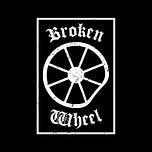- The words of a wise man’s mouth win him favor,
but the lips of a fool consume him. -

A mark of a good teacher is knowing when to ask your audience a question.
This is most clearly seen in the poor discussion questions that accompany study books. The questions definitely can generate discussion, but not perhaps in the way the author’s intended.
There is always the opportunity for the class to run away with the lecture when a question is asked. Give them an inch and some take a mile.
Perhaps a more unsure instructor will only use rhetorical questions as a way to indicate thought without inviting others to participate.
A step up from this is the “are you actually listening?” question. It drives engagement with the talk, but limits it to a memorization game.
What did I just read? What did we just discuss? How does this relate to what we just covered?
These questions are useful as they keep people on track, help them remember key parts of your talk that you intend to reference, and to guilt listeners who are not paying attention.
Some teachers might be tempted to think that the best question is the one that invites their listeners to think for themselves.
A nicely phrased open-ended question has the flair of the academic all around it, but this requires a buy-in from the students that is usually not given.
For an open question to work, the audience must’ve read enough to engage with it properly. This is a luxury for a teacher and not a possibility for a lecturer.
Now, asking on open ended question to students who cannot answer it shows them, if they are paying attention, that they are not ready for the exam!
But, a lecturer has the hour. No required reading is distributed beforehand. They are the only person to engage with their texts.
So, what kind of question can they ask? They ask questions that show their audience how to think.
They are questions that show how the lecturer moves from point to point throughout their studies and meditations on the subject itself, revealing how to learn the material.
A good lecturer reveals what they have learned and instructs those listening how to discover similar insights for themselves.
How can we know this? We might have been lucky enough to have experienced this type of teacher before, or we could thank Socrates himself.
The Socratic method is essentially this process of asking questions to get to the bottom of things. Read Socrates though and you will see he acts plenty of times like a guide rather than an explorer.
Perhaps it is with the proper questions that we can recognize wise men and women among us.
Now, one thing that we can find in any lecture is the student who wishes to not only answer every question but fill every silence.
They may even have some genuinely good insights, but these are drowned out by the rest of their speech.
Why? No one came to hear them. They’ve taken over a public forum. They came to an event where someone else was to speak and made it about their ego.
They’ve proven themselves a fool and destroyed any good message they had with an abundance of speech.
What is the lesson for us? Sit when it is our time to sit. Even bad lectures prove to our benefit if we listen to what they lack.
As a teacher, know you must guide your listeners and direct away from distractions. You must be an expert both in speech and your material in order to do so.
In all things, act as unto God.













Share this post